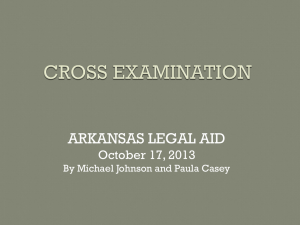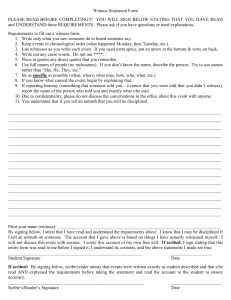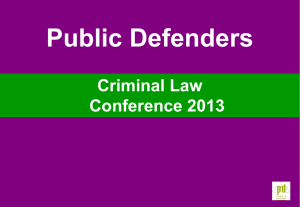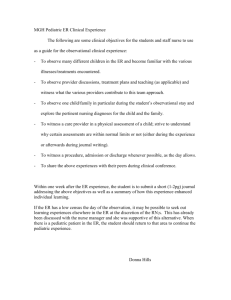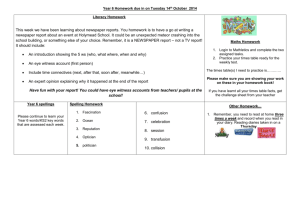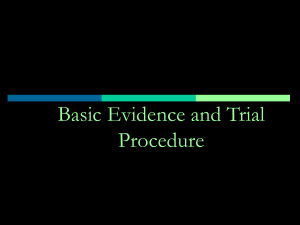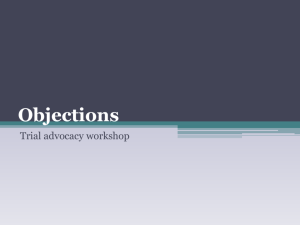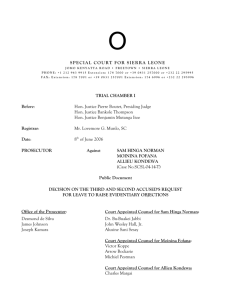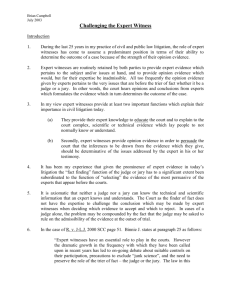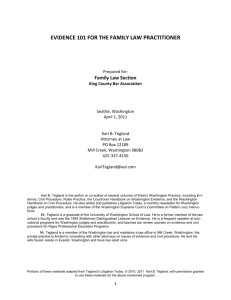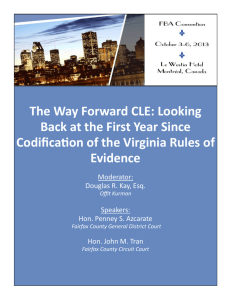Common Evidentiary Objections: A Legal Guide
advertisement
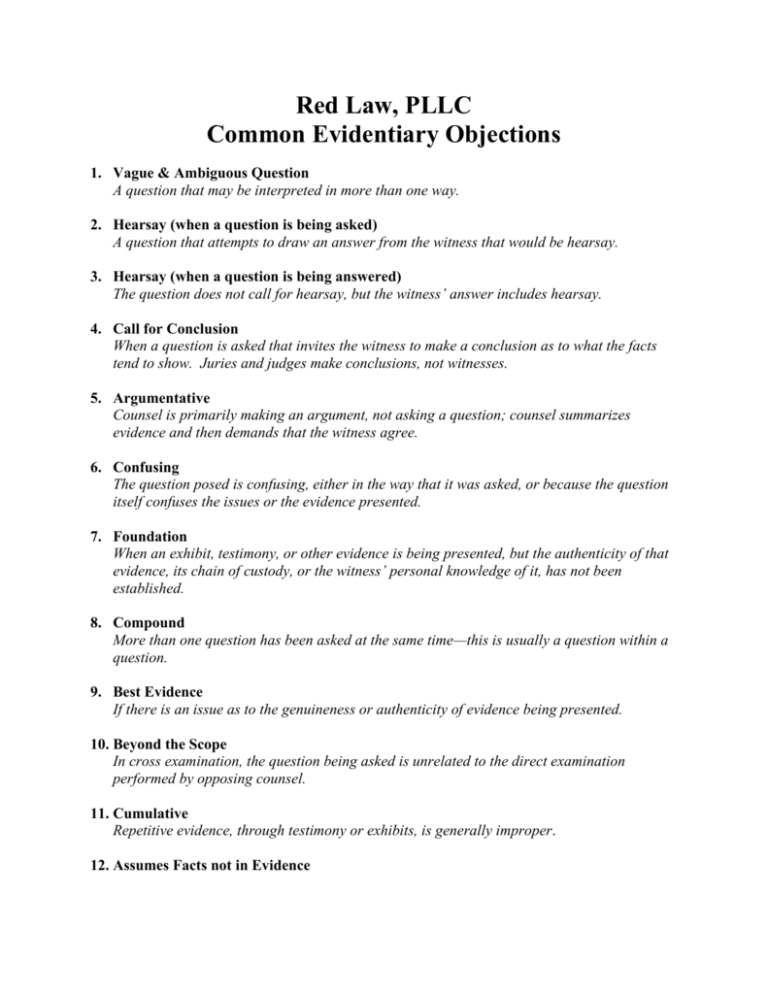
Red Law, PLLC Common Evidentiary Objections 1. Vague & Ambiguous Question A question that may be interpreted in more than one way. 2. Hearsay (when a question is being asked) A question that attempts to draw an answer from the witness that would be hearsay. 3. Hearsay (when a question is being answered) The question does not call for hearsay, but the witness’ answer includes hearsay. 4. Call for Conclusion When a question is asked that invites the witness to make a conclusion as to what the facts tend to show. Juries and judges make conclusions, not witnesses. 5. Argumentative Counsel is primarily making an argument, not asking a question; counsel summarizes evidence and then demands that the witness agree. 6. Confusing The question posed is confusing, either in the way that it was asked, or because the question itself confuses the issues or the evidence presented. 7. Foundation When an exhibit, testimony, or other evidence is being presented, but the authenticity of that evidence, its chain of custody, or the witness’ personal knowledge of it, has not been established. 8. Compound More than one question has been asked at the same time—this is usually a question within a question. 9. Best Evidence If there is an issue as to the genuineness or authenticity of evidence being presented. 10. Beyond the Scope In cross examination, the question being asked is unrelated to the direct examination performed by opposing counsel. 11. Cumulative Repetitive evidence, through testimony or exhibits, is generally improper. 12. Assumes Facts not in Evidence Counsel’s question assumes that certain facts, which have not been established, have already been established. 13. Misstates Testimony Counsel asks a question which misstates prior testimony of a witness. 14. Improper Impeachment Counsel has impeached, or is beginning to impeach, a witness through improper means. 15. Leading Counsel asks a question which tends to suggest the answer he/she is looking for. 16. Calls for Narrative The question will grant the witness the ability to speak freely about a variety of issues and risks presentation of irrelevant or hearsay evidence. 17. Opinion Counsel calls for an improper opinion, such as asking a lay person to testify to matters only an “expert witness” should testify to. 18. Privileged The question asks the witness to present evidence in violation of certain privileges, such as the attorney-client privilege, physician-patient privilege, clergyman-penitent privilege, or spousal privilege. 19. Speculation The question asks the witness to guess as to matters the witness does not know about. 20. Counsel is Testifying Counsel is making a statement instead of asking a question. 21. Nonresponsive The witness provides information, but does not answer the question asked, or the witness answers the question but provides additional information not asked for. 22. Prejudice Outweighs Probative Value The evidence being solicited is unfairly prejudicial to one of the litigating parties. 23. Relevance The evidence being solicited doesn’t have any bearing on the issues before the court.

